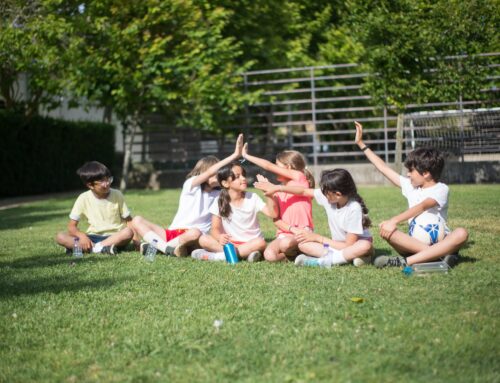Helping children cope with divorce
Helping children cope with divorce is a thing no one entering into marriage expects to have to do. Yet we know that 50% of couples will split, with the average marriage lasting just seven to eight years. Besides our own stress of going through separation or divorce as a parent, it’s normal to feel immense guilt. It’s normal to worry about how it will affect the children. Additionally, dissolution of a marriage is considered to be an ACE. An ACE is an adverse childhood experience that is linked to a negative long term outcome. Helping children cope with divorce is a big part of ensuring kids do the best that they can during this important change.
It’s true that parents going through separation and divorce face many challenges. This includes everything from keeping it civil with our co-parent to logistical issues around housing, holidays, school and social schedules. Although none of it is easy when a relationship has broken down, life must go on. Then practical considerations must be attended to.
Parents need to know what they can do to protect children. There are things parents can do to help act as a buffer which reduces the impact of life stress on children’s well-being. You can support your children and ensure that their needs are front and center even as they navigate separation and divorce by focusing on these areas:
Children can cope with change
From your child’s perspective, the two people they care about the most are no longer living in the same house. Helping children cope with divorce means helping them adjust to a new reality. Despite the harsh reality children want things to stay the same. It’s expected that they need time to adjust. Parents need to allow children as much time as is needed. When parents expect children to adjust quickly it will be harder for the child to come to terms with it. Furthermore we need to consider the age and developmental stage of each of the children. Plan to have a number of conversations over time as children grow. It’s not a one and done. It’s a change which can be revisited. Parents need to encourage children to share their experience of separation and divorce. We can ask them open questions to get started.
Reconnecting In Meaningful Ways
Every relationship disruption presents an opportunity for repair and for growth. In a separation, your relationship to your partner has fundamentally changed. What has not changed is your relationship to your child. We are still the parents. Therefore we can communicate with words and actions that you want everyone in the family to get through this as best they can. You can make it a priority to reconnect with your child to let them know that they are safe. As the expert on your child, you know what makes them tick. Make a point to build connection and rapport spending time doing things that they enjoy and find relaxing.
Building A Relationship Bridge
This is a practice which puts the children’s needs front and center again. As a parent, you need to work on ways to help your children feel there is a predictable routine in moving from one home to the other. We want to avoid a situation where children fall off the bridge into a type of psychological abyss. Additionally the children’s needs will be an important part or any dispute resolution process.https://fdrc.co.nz/parenting-and-guardianship-fdr-mediation/voice-of-the-child/
Being An Emotion Coach
We know that it’s necessary for children to understand their emotions in order to develop important abilities like empathy. We can learn skills to help support them by being an emotion coach. What being an emotion coach involves in any particular separation and divorce will be different. A healthy separation and divorce is one in which children feel safe to express all their emotions, especially the yucky ones. When parents can allow their children the space to do this then they are helping them to come to terms with what is happening to them. This will strengthen trust and deepen the bond they have with their parents.
Respecting Your Co-Parent
Kids have two parents. They love both of them. While your relationship with your co-parent has changed, the child’s relationship has not. In order to support your child it’s important to encourage a positive relationship with both parents. You need to avoid speaking negatively about the other parent to help prevent your child from feeling guilt or shame about the fact they want to continue having that relationship.https://gtgparenting.co.nz/2023/01/harmonizing-common-ground-parenting/
Helping children cope with divorce
Separation and divorce need not be a disaster. Parenting through separation and divorce isn’t easy, but as parents navigate this transition they can find that increasing connection, building a relationship bridge and being an emotion coach are all powerful ways to keep the connection strong and help kids feel safe.
Interestingly, children have an opportunity to learn from all of the experiences they have. Hence, going through a divorce is an opportunity to learn about ourselves and people we love. Parents who have open and honest conversations with their children are going to thrive, not just survive. Kids need to know we are not perfect and that there is no perfect relationship.
If you are wanting more ways to helping children cope with divorce and you want to find out how parent coaching could help, get in touch now Justine@gtgparenting.co.nz




